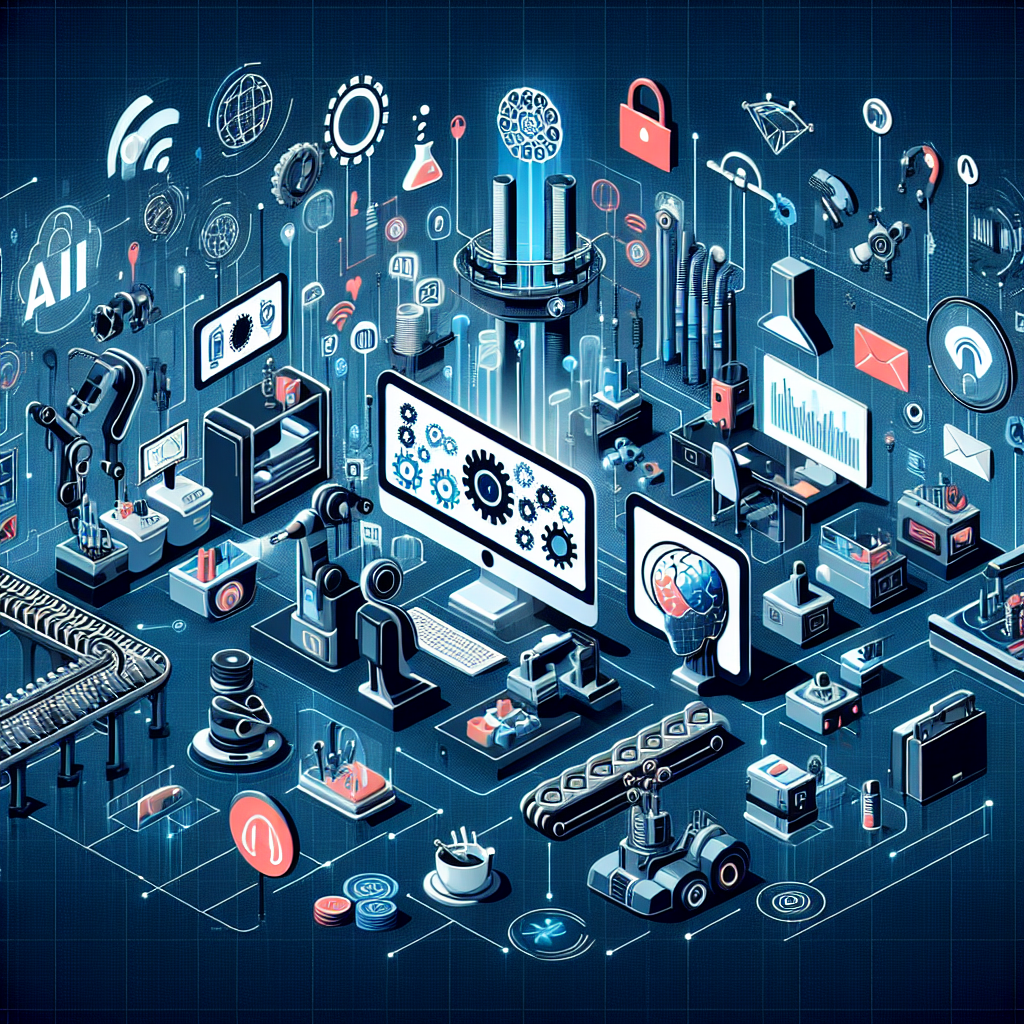The Impact of AI Automation on the Future of Work
Artificial Intelligence (AI) automation is rapidly transforming the way we work, with implications for nearly every industry and job sector. From manufacturing and logistics to healthcare and finance, AI is being used to streamline processes, increase efficiency, and improve productivity. While AI automation has the potential to revolutionize the way we work, it also raises important questions about the future of jobs and the workforce.
One of the key impacts of AI automation on the future of work is the potential for job displacement. As AI technology becomes more advanced, tasks that were once performed by humans are increasingly being automated. This has led to concerns about the loss of jobs and the displacement of workers in industries that are heavily reliant on manual labor. However, proponents of AI automation argue that while some jobs may be lost, new opportunities will be created in industries that are focused on developing and implementing AI technology.
Another impact of AI automation on the future of work is the changing nature of jobs. As AI technology becomes more advanced, jobs that require routine, repetitive tasks are likely to be automated, while jobs that require creativity, critical thinking, and problem-solving skills will become increasingly valuable. This shift in the types of skills that are in demand is already being seen in industries such as healthcare, where AI technology is being used to analyze medical images and assist in diagnosis.
AI automation also has the potential to increase productivity and efficiency in the workplace. By automating repetitive tasks and streamlining processes, AI technology can help businesses save time and money, allowing them to focus on more strategic initiatives. This can lead to increased profitability and growth, as businesses are able to operate more efficiently and effectively.
However, the impact of AI automation on the future of work is not without challenges. One of the key concerns is the potential for job displacement and the loss of jobs in industries that are heavily reliant on manual labor. This has led to calls for policies and programs to help workers transition to new jobs and industries that are less vulnerable to automation. Additionally, there are concerns about the ethical implications of AI automation, including issues related to privacy, bias, and transparency.
As AI technology continues to advance, it is important for policymakers, businesses, and workers to consider the implications of AI automation on the future of work. By understanding the potential impacts of AI automation and taking proactive steps to address challenges and opportunities, we can ensure that AI technology is used in a way that benefits society as a whole.
FAQs
Q: Will AI automation lead to the loss of jobs?
A: While AI automation has the potential to automate certain tasks and jobs, it also has the potential to create new opportunities in industries that are focused on developing and implementing AI technology. It is important for policymakers, businesses, and workers to consider the implications of AI automation on the future of work and take proactive steps to address challenges and opportunities.
Q: What skills will be in demand in a future dominated by AI automation?
A: Jobs that require creativity, critical thinking, and problem-solving skills are likely to be in demand in a future dominated by AI automation. As AI technology becomes more advanced, jobs that require routine, repetitive tasks are likely to be automated, while jobs that require human skills such as creativity and critical thinking will become increasingly valuable.
Q: How can workers prepare for the impact of AI automation on the future of work?
A: Workers can prepare for the impact of AI automation on the future of work by developing skills that are in demand in a future dominated by AI technology. This may include skills such as creativity, critical thinking, and problem-solving, as well as skills related to data analysis, machine learning, and AI technology.
Q: What are the ethical implications of AI automation?
A: AI automation raises important ethical questions related to privacy, bias, and transparency. As AI technology becomes more advanced, it is important for policymakers, businesses, and workers to consider the ethical implications of AI automation and take steps to address issues related to privacy, bias, and transparency.

